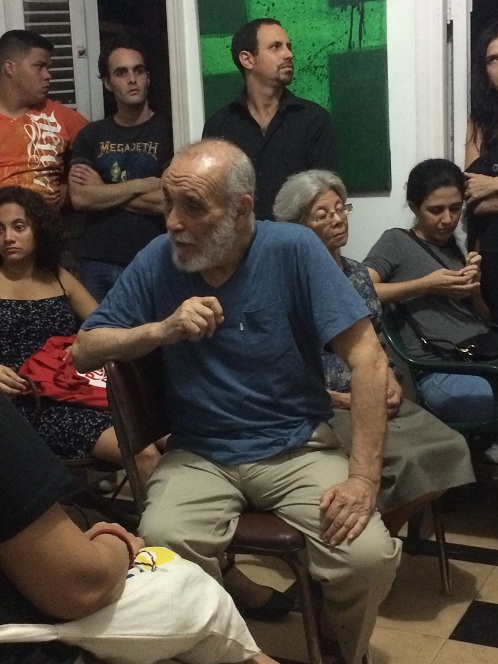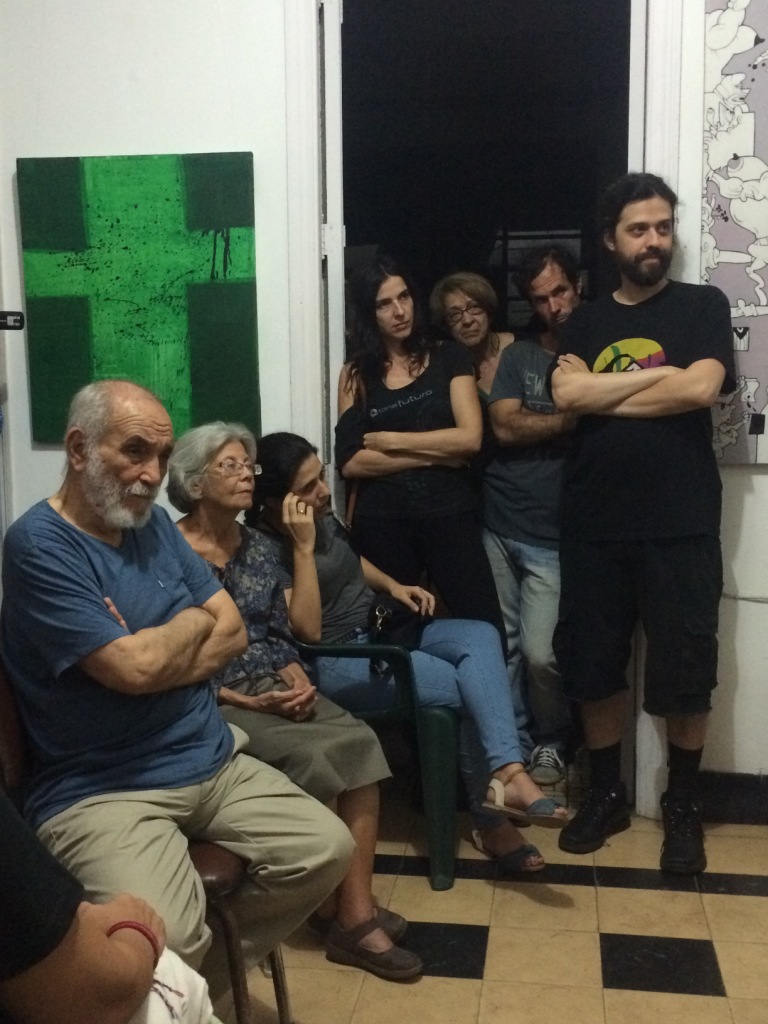
Yanelys Nunez Leyva, Havana Times, 26 December 2016 — One of the most recent films directed by filmmaker Miguel Coyula is being screened during some independent spaces in Havana: Samuel Riera’s studio, Oscar Casanella’s home and the El Circulo gallery.
On Sunday the 18th, I went to see it at this last venue, located in Lia Villares and Luis Trapaga’s home, and I was happy to see so many familiar spaces. Several friends, journalists, activists, art critics, writers…
Most of us sat on the floor in the small living room, and the documentary Nadie (Nobody) from 2016 was shown promptly at 8:10 PM.
The protagonist, the poet Rafael Alcides was among us. It’s a luxury, almost everyone who knows him was saying.
I’m slightly out of the know, I haven’t read anything that he’s written, even though I have had some excellent recommendations.
The first thing that I liked was the narrator’s voice, it was nostalgic, bucolic, beautiful.
Then, Alcides’ story came; he didn’t want to speak about his personal life. Only about the novels which he is trying to recover right now, papers which have fallen to pieces due to the typewriter’s corrosive ink and time.
He only wanted to speak about his love/hate relationship with the revolutionary process. About his deception in the face of Fidel supporting the Russian invasion of Czechoslovakia, and of Ochoa’s assassination.
He only wants to talk about Beauty.

Coyula appeals to a visual collage, just like he did in his renowned Memories del Desarrollo (Memories of Overdevelopment). In the film, Antonia Eiriz’s pedestal becomes that of Alcides, who talks in a die-hard fashion with a caricature of Fidel, that of historic and rhetorical speeches. And he answers him, in a debate about the life of the New Man.
Alcides isn’t a defeated poet. According to him, artists are a testimony and chronicler of their time, and he still believes he can do both of these things in the most dignified way he can.
He has distanced himself from the institutions which once published a book of his, he has sought refuge in his home, he has cut himself off from his neighbors, from friends who were too involved but whom he still loves, but who no longer visit him.
Alcides leads us in this documentary to what he calls «everybody’s burial», which is nothing more than the death of an idea, of a utopian dream, with Fidel Castro’s death.
The director of the documentary didn’t put it forward to be screened in the selection of movies at the Havana Film Festival. He wants to send it to other platforms, perhaps more understanding international events where there is greater dialogue.
The story of this cursed poet will reach Cuban viewers in another way, perhaps at screenings like this one, informal, maybe even via the paquetito, the alternative to the «government’s» Weekly Package of audiovisuals. The important thing is that it has already come to life, that it has already begun its journey, existing on the fringe, with the same seal of the good «misfits» who made it.
